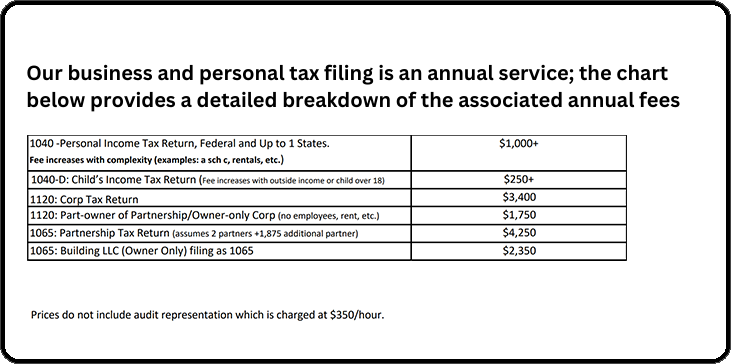Tune in to our podcast series: The Dental Board Room
Listen Now

When the stock market takes a dip, most investors feel the sting of watching their portfolio balances decline. But for savvy planners, a market downturn can open the door to a smart tax strategy: converting a traditional IRA to a Roth IRA.
Here’s why making this move when the market is down can pay off in the long run.
The Basics: Traditional IRA vs. Roth IRA
To convert from a traditional IRA to a Roth, you pay taxes on the amount converted in the year of the conversion. But here’s where the market downturn works to your advantage.
Why Down Markets Make Roth Conversions Attractive
1. Lower Tax Cost on the Conversion
When the market is down, your IRA account value is lower. That means converting assets at depressed values triggers less taxable income today than if you converted when the account was at its peak. You essentially "pay taxes on the sale price, not the sticker price."
Example:
If your IRA was worth $500,000 but is temporarily down 20% to $400,000, converting now means you’re paying tax on $400,000 instead of $500,000. If the market rebounds post-conversion, the recovery happens inside your Roth IRA — growing tax-free forever.
2. Lock In Low Tax Rates (If Applicable)
Tax rates may not stay this low forever. Current tax brackets, thanks to the Tax Cuts and Jobs Act, are scheduled to sunset after 2025. If rates rise in the future, converting now at today’s rates could mean significant long-term savings.
For those who find themselves in a temporarily lower-income year — perhaps due to a job change, business loss, or other circumstance — a market downturn combined with a low-income year can be a perfect double opportunity to convert at minimal tax cost.
3. Reduce Future Required Minimum Distributions (RMDs)
Traditional IRAs require RMDs beginning at age 73 (or 75, depending on your birth year), which can increase your taxable income in retirement. Roth IRAs are exempt from RMDs during your lifetime, giving you more control over your retirement income and taxes.
4. Create Tax Diversification for Retirement
Having a mix of pre-tax, Roth, and taxable accounts in retirement gives you flexibility. It allows you to pull income from different "buckets" depending on your tax situation each year, potentially reducing lifetime taxes and maximizing after-tax income.
Key Considerations Before You Convert
Final Thought: Timing Can Be Everything
Market pullbacks aren’t fun to endure, but they can create windows of opportunity for those prepared to act. Converting to a Roth IRA during these dips can turn short-term pain into long-term gain — letting you pay less tax now and reap tax-free growth for decades to come!
Wes Read CPA, CFP
Wes knows what's best for dental practices. He's been doing this for a long time and he sees lots of practices. He can tell me how our practice is doing, and what we can do to increase our productivity. With past CPA's, there were no ideas. It was all coming from me, saying "I think I can do better, but I don't know how." I come in to meet with Wes and he says "You CAN do better, and I know how."
PracticeCFO is in hundreds of dental offices around the country. They know what numbers should look like. They know what percentages of payroll, rent and supplies should be, and they will hold you accountable to those numbers, which will really help you stick to your plan and your path of growth and savings. That is invaluable
Whenever something comes up, whether it's building or practice related and we weren't sure where the numbers would go, PracticeCFO has been instrumental in helping us figure that out. I can't say enough of how important that is - that it goes beyond that initial partnership. They make sure this business marriage works.
When I go home from work, I don't spend a whole lot of time stressing about what my books look like, or how much I owe in taxes. By using PracticeCFO, the burden of keeping track of a lot of the big financial numbers and metrics are taken off my plate.
PracticeCFO helped me develop a plan for the future. I have colleagues that work with other accountants that don't have a plan - they just look at the numbers of the practice and that's it. There's no plan for 10, 20 years from now. But with PracticeCFO, you get that. PracticeCFO makes you feel like you're they're only client.
(In reference to his practice sale) What could've been super stressful, wasn't! When picking John and Wes, it was from word of mouth recommendations and other people's experiences from the past that really did it for me. And it turns out that those recommendations were right on the line.
Wes knows the business side of dentistry. His comprehensive plan will organize your personal and professional finances so you can focus on taking care of patients. Massive ROI.
I can’t say enough good things about everyone at PracticeCFO. Everyone on the team is professional, organized, knowledgeable, helpful and kind. They also respond to emails and phone calls immediately and are always happy to help. They have helped me navigate year-to-year as a business owner. PracticeCFO gives me peace of mind that my business is in good hands.
I love Practice CFO! They have helped me obtain a practice and maintain a practice. They are incredible people who are on top of everything and make owning and running the business portion of a practice easy. They couldn’t be better for my business and my sanity. They have every detail of the business and taxes taken care of where all I have to do is show up and follow their easy steps to success!
Practice CFO has the best tools I’ve seen for personal tax and financial planning in addition to top-tier corporate tax and accounting services. I have been very pleased with the level of quality service. They manage my monthly bookkeeping and accounts payable. It is a great system and saves me a ton of time, and it allows us to have monthly financial statements within a week of month end.

This will close in 0 seconds